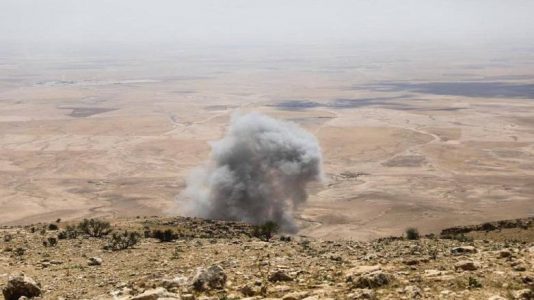
US bombing Taliban terrorists in an attempt to exert control in post-withdrawal era
US President Joe Biden has ordered B-52 bombers and Specter gunships to target Taliban positions in Afghanistan. The Taliban are advancing toward key cities, according to Kabul-based Tolo News on Saturday.
This embodies the US’ deep concern about the deteriorating security situation in Afghanistan. Washington is worried that after its withdrawal, the Taliban will seize power by force.
In regard of the hasty US’ troop withdrawal, the Biden administration is under intense criticism at home, especially from the Republicans. Biden’s team is also worried that the hasty pullout will impair its credibility in front of its allies. Biden’s decision to launch air strikes can be seen as a response to this blistering criticism and pressure.
Although the US’ strike can to some extent disrupt the Taliban’s offensive in some areas, it will severely impact the relations between the US and the Taliban. Washington’s airstrike on the Taliban undermined the latter’s trust toward the US, which was achieved through rounds of negotiations. The Taliban will use US’ airstrike as an excuse to launch more attacks.
The US’ withdrawal suggests that the Biden administration doesn’t want to be mired in the Afghanistan War any more. American society has also been tired of the Afghanistan War.
Washington itself is clearly aware that its efforts in Afghanistan have basically failed in terms of countering terrorism and religious extremism. It has not successfully promoted US-style democracy and rebuilt Afghanistan society either.
However, as the US has spent 20 years in Afghanistan, some US political and military elites believe if the Afghan government falls, the US’ limited gains in the country will be in vain. The US cannot sit back and do nothing in this case.
In the future, considering the need to maintain credibility of US’ alliance commitments and the strategic importance of the location of Afghanistan, the US will continue to keep some influence in Afghanistan in a bid to prevent the Taliban from completely taking power and play a role in geopolitics. Therefore, Washington will continue seeking to exert influence in the region through some countries in the Central Asia.
In late April, representatives from China, Russia, Pakistan, and the US held talks on the Afghan issue. The four countries agreed in a joint statement that “a negotiated political settlement through an Afghan-led and Afghan-owned process is the only way forward for lasting peace and stability in Afghanistan.”
The US wants the situation in Afghanistan to stay stable. It hopes to promote a national reconciliation process between the current Afghan government and the Taliban through cooperative dialogues. In this way, Afghanistan can remain under a political framework led by the Afghan government. This is the most favorable option for US interests.
But now, the Taliban’s offensives are going strong. The US fears that the Taliban will be in full control of the situation in Afghanistan. The US hopes air force attacks can help reverse the imbalance on the Afghan battlefield. It hopes this can force the Taliban back to the negotiating table and eventually achieve the model the US intends to see.
The US troops’ hasty withdrawal from Afghanistan has obviously triggered some negative consequences. Such a move indicates that the US army is admitting its failure in the 20-year Afghanistan War. This has inspired the Taliban and also many violent, terrorist, and extremist forces in Afghanistan. As a consequence, there are signs of a rise in terrorist activities for the whole region, including Pakistan.
There are deep-rooted contradictions and divisions in Afghan society in terms of ethnic, tribal, and religious issues. US troops have long been stationed in Afghanistan under the banner of bringing democracy to the country. However, they haven’t made any substantial changes in solving the country’s problems. Instead, their irresponsible withdrawal from the country has intensified these conflicts. In other words, Washington’s quick withdrawal is an important reason for the resurgence, and explains the intensification of the civil war in Afghanistan now.
Source: Global Times





